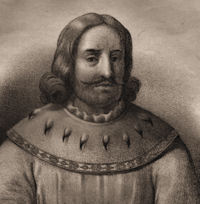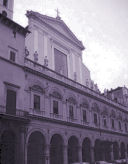From CatholicCulture.org:

Daily Readings for:March 02, 2012
Move to: Previous Day | Next Day

The most comprehensive treatment of the Liturgical Year available online: daily reflections, saints, seasons, calendars, prayers, activities, and recipes.

Daily Readings for:March 02, 2012
(Readings on USCCB website)
Collect: Grant that your faithful, O Lord, we pray, may be so conformed to the paschal observances, that the bodily discipline now solemnly begun may bear fruit in the souls of all. Through our Lord Jesus Christ, your Son, who lives and reigns with you in the unity of the Holy Spirit, one God, for ever and ever.
Lent: March 2nd

 Friday of the First Week of LentOld Calendar: Bl. Charles the Good, martyr (Hist)
Friday of the First Week of LentOld Calendar: Bl. Charles the Good, martyr (Hist)
Move to: Previous Day | Next DayHistorically today is the feast of Blessed Charles the Good, the Danish prince, son of the holy king Canuto IV, gained the crown of the Count of Flanders from his maternal lineage. After an initial brief interval, his reign was marked by peace and justice. Dedicated to the defense and aid of the poor and weak, he was killed by soldiers that he had tried to pacify. Leo III officially beatified him in 1882 and the new Roman Martyrology still remembers the anniversary of his martyrdom.
Blessed Charles the Good
Count Charles of Flanders, was called "the good" by the people of his kingdom. They named him for what they found him to truly be. He was the son of St. Canute, king of Denmark. Charles was just five years old when his father was murdered in 1086. When Charles grew up, he married a good young woman named Margaret. Charles was a mild and fair ruler. The people trusted him and his laws. He tried to be an example of what he expected the people to be.
Count Charles of Flanders, was called "the good" by the people of his kingdom. They named him for what they found him to truly be. He was the son of St. Canute, king of Denmark. Charles was just five years old when his father was murdered in 1086. When Charles grew up, he married a good young woman named Margaret. Charles was a mild and fair ruler. The people trusted him and his laws. He tried to be an example of what he expected the people to be.
Some nobles accused Charles of unjustly favoring the poor over the rich. He answered kindly, "It is because I am so aware of the needs of the poor and the pride of the rich." The poor of his realm were fed daily at his castles.
Charles ordered the abundant planting of crops so that the people would have plenty to eat at reasonable prices. Some wealthy men tried to hoard grain to sell at very high prices. Charles the Good found out and forced them to sell immediately and at fair prices. An influential father and his sons had been reprimanded by Charles for their violent tactics. They joined the little group of enemies who now wanted to kill him.
The count walked every morning barefoot to Mass and arrived early at the Church of St. Donatian. He did this in a spirit of penance. He longed to deepen his own spiritual life with God. His enemies knew that he walked to church and also that he prayed often alone before Mass. Many people who loved Charles feared for his life. They warned him that his walks to St. Donatian could lead to his death. He replied, "We are always in the middle of dangers, but we belong to God." One morning, as he prayed alone before the statue of Mary, his attackers killed him. Charles was martyred in 1127.
Excerpted from Holy Spirit Interactive

Today's station is at the Church of the Twelve Apostles. Traditionally, this is the place where the Romans choose their candidates for priesthood (Rite of Election). It was erected by Julius I (337-352) over the barracks of ancient Rome's firemen and entrusted since 1463 to the Conventual Franciscans. Originally dedicated to the Apostles St. James and St. Philip, it was rededicated to all the Apostles in the 16th century

No comments:
Post a Comment